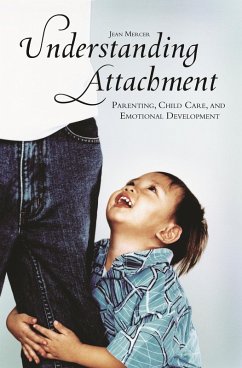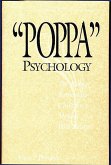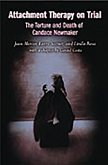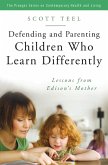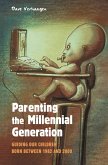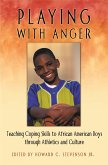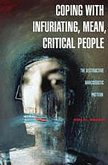Is maternal instinct fact or fiction? What special challenges do adoptive parents face? What kind of daycare is better, one with many caregivers or one with few? When is separation anxiety normal in a child? Do the experiences of early childhood always influence our ability to build and maintain social relationships as adults? Understanding Attachment helps to answer these questions and many others. This book is perfect for the reader who wants or needs a thorough understanding of attachment, but does not have time to indulge in lengthy study. Parents, child care providers, teachers, nurses, social workers, attorneys, therapists, students, and counselors will all appreciate this work.
Is maternal instinct fact or a myth? What special challenges do adoptive parents face? What kind of daycare is better, one with many caregivers or one with few? When is separation anxiety normal in a child, and when is it a sign of a developmental problem? Do the experiences of early childhood always influence our ability to build and maintain social relationships as adults? Understanding Attachment helps to answer these questions and many others. This book is perfect for the reader who wants or needs a thorough understanding of attachment, but does not have the time to indulge in lengthy study. Parents, child care providers, teachers, nurses, social workers, attorneys, therapists, students, and counselors will all appreciate this work.
Mercer defines attachment and related terms, discusses the history of the idea, and describes ways in which this aspect of emotional life can be measured. She explains developmental change and the way attachment continues to alter from infancy to adulthood. The importance of social experiences with parents and other caregivers is emphasized. Outcomes of good and poor attachment experiences are discussed, and there is material on attachment disorders. The book concludes with a description of recent work that gives a new perspective on attachment.
Is maternal instinct fact or a myth? What special challenges do adoptive parents face? What kind of daycare is better, one with many caregivers or one with few? When is separation anxiety normal in a child, and when is it a sign of a developmental problem? Do the experiences of early childhood always influence our ability to build and maintain social relationships as adults? Understanding Attachment helps to answer these questions and many others. This book is perfect for the reader who wants or needs a thorough understanding of attachment, but does not have the time to indulge in lengthy study. Parents, child care providers, teachers, nurses, social workers, attorneys, therapists, students, and counselors will all appreciate this work.
Mercer defines attachment and related terms, discusses the history of the idea, and describes ways in which this aspect of emotional life can be measured. She explains developmental change and the way attachment continues to alter from infancy to adulthood. The importance of social experiences with parents and other caregivers is emphasized. Outcomes of good and poor attachment experiences are discussed, and there is material on attachment disorders. The book concludes with a description of recent work that gives a new perspective on attachment.

